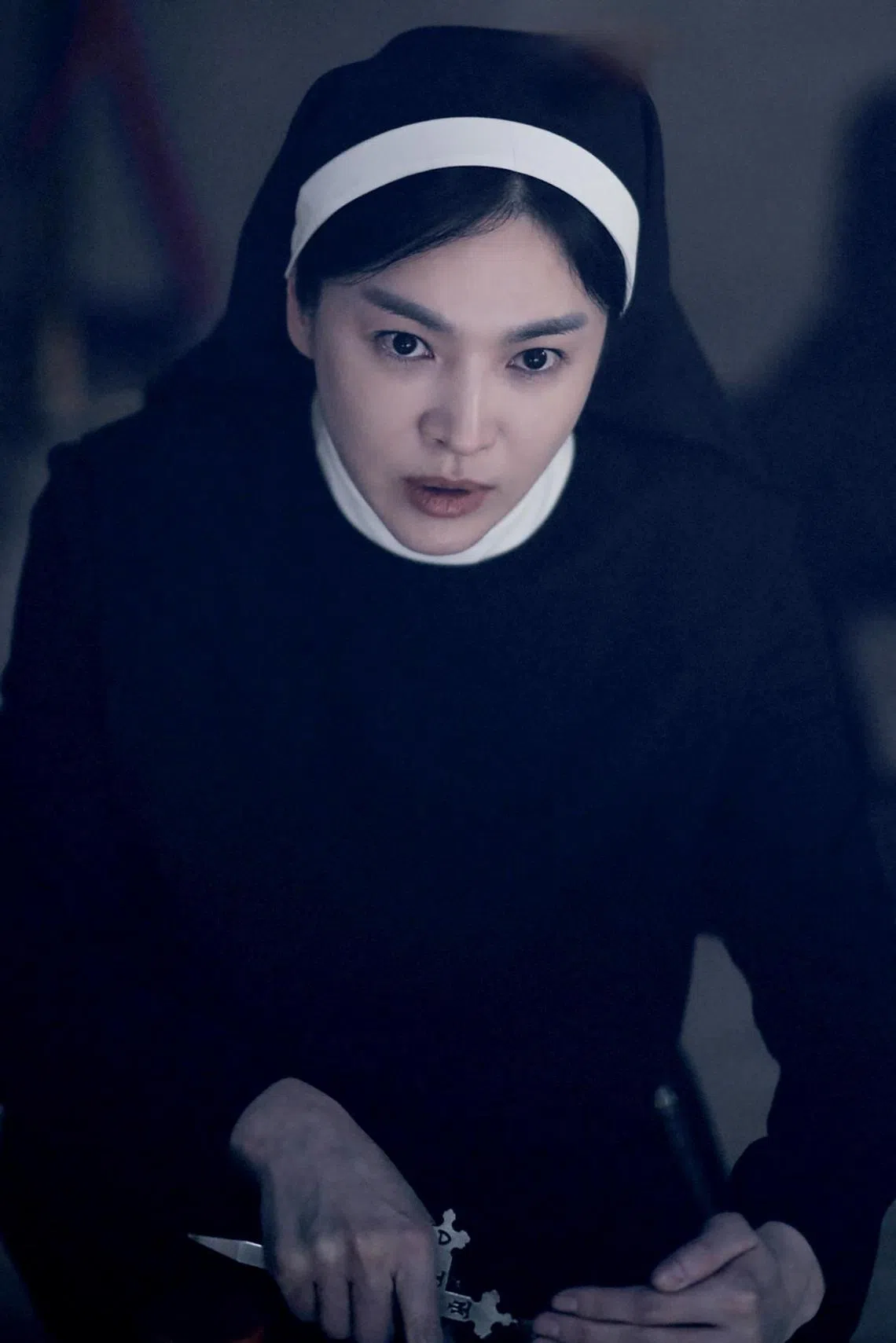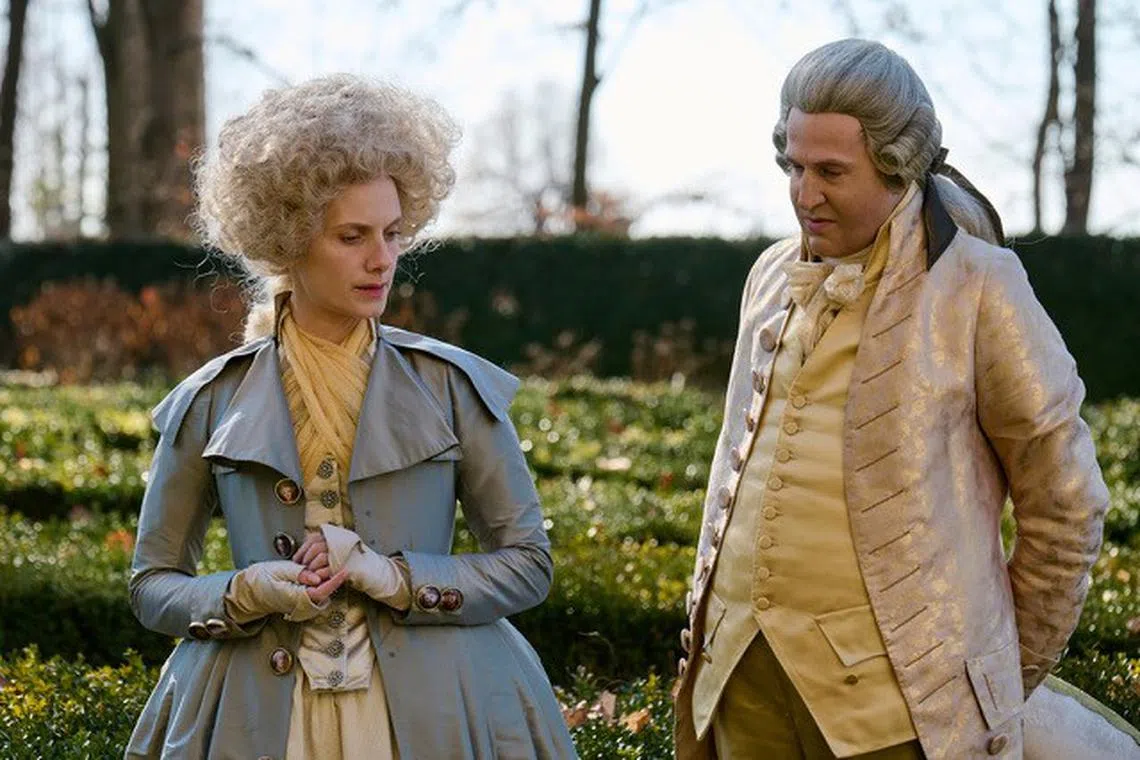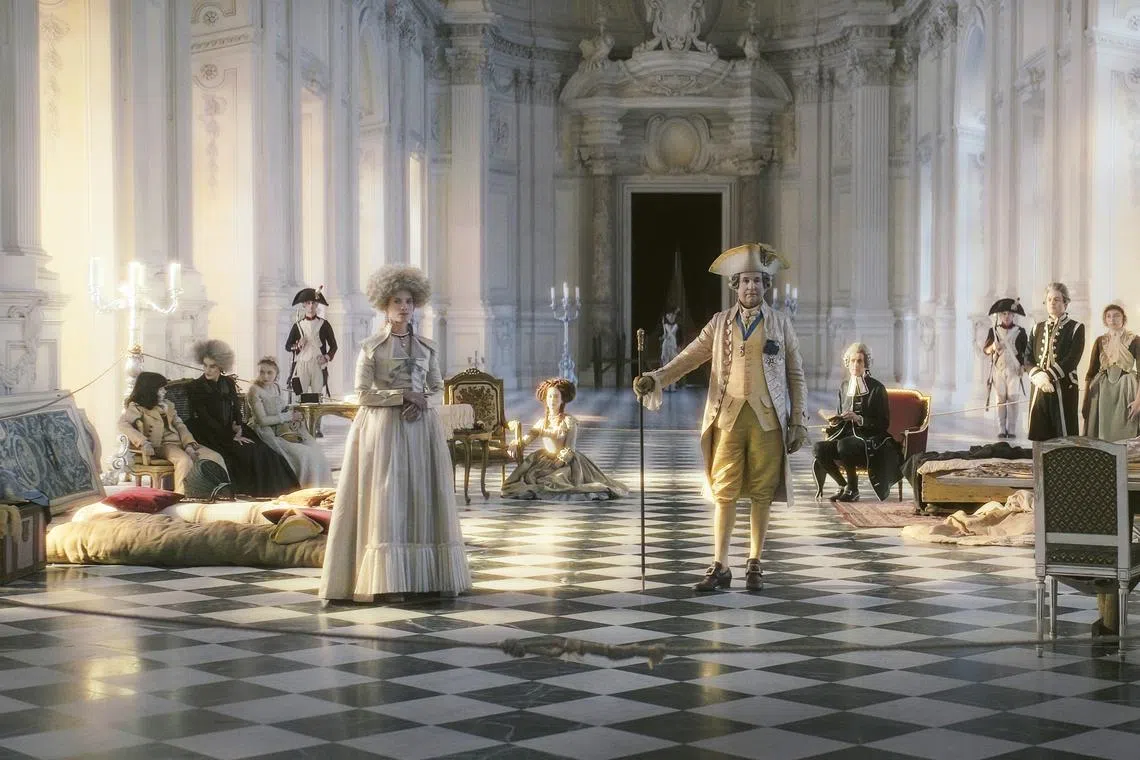At The Movies: K-horror Dark Nuns tests your patience, The Flood recasts France’s last royal couple
Sign up now: Get ST's newsletters delivered to your inbox

Song Hye-kyo in Dark Nuns.
PHOTO: SHAW ORGANISATION
Follow topic:
Dark Nuns (NC16)
115 minutes, opens on Feb 13
★★☆☆☆
The story: Sisterhood takes on new meaning in this feminist spin-off of the 2015 South Korean occult drama The Priests, as two nuns battle institutional patriarchy and a powerful evil.
The Catholic Church ordains only men for exorcism rites. But when the priests prove ineffectual, Song Hye-kyo (The Glory, 2022 to 2023) and Jeon Yeo-been (Harbin, 2024) rock up to the sacrilegious title roles of Dark Nuns to expunge a demon from an adolescent boy (Moon Woo-jin).
The renegade novices employ Latin incantations, holy water and grim resolve.
Shamans and tarot cards will feature too, giving rise to church politics and an ideological conflict with a psychiatrist priest, played by Lee Jin-wook (Squid Game, 2021 to present), who believes medicine is the cure.
The trinity of charismatic Hallyu stars may explain the movie’s success, topping the box office in Indonesia and the Philippines as well, because the K-horror directed by Kwon Hyeok-jae is all portentous mood shots with an underwritten script lacking in frights.

Song Hye-kyo in Dark Nuns.
PHOTO: SHAW ORGANISATION
What is this dark entity, a reappearance of one of “the 12 Manifestations” from The Priests? What are the other 11?
The saga centres on its possession of just the boy, who contorts and spews blasphemy, but it is hard to be emotionally invested when he has no backstory.
The heroines, whose own hinted-at internal turmoil and psychic gifts remain unexplained, refuse to lose faith, culminating in a 20-minute exorcism in a warehouse that is more or less a repeat of the 90 minutes before and, hence, increasingly boring as it grinds on.
Hot take: At stake amid the monotonous proceedings is not only an innocent soul, but also the viewer’s patience.
The Flood (PG13)
102 minutes, opens on Feb 13
★★★☆☆

Guillaume Canet (right) and Melanie Laurent in The Flood.
PHOTO: SHAW ORGANISATION
The story: It is 1792 France, and the Ancien Regime is deposed by the French Revolution. Once Europe’s most powerful monarchs, the family of Louis XVI (Guillaume Canet) and his consort Marie Antoinette (Melanie Laurent) are isolated in Temple Prison on the outskirts of Paris to await their fate.
The couple’s tragic fall at the guillotine has entered common lore, appropriated by pop culture including Sofia Coppola’s 2006 Hollywood art-house hit Marie Antoinette.
Much less known are their final months of incarceration before their executions, and French production The Flood offers an absorbing hitherto-untold account based loosely on the journal of Louis’ loyal valet Clery (Fabrizio Rongione), who was by his side until his death.
It is a sombre chamber piece – the chamber, far from Versailles Palace, the mediaeval fortress prison where the royals are successively stripped of their status, remaining courtiers and possessions down to their writing instruments.
Eventually, when even their two young children (Anouk Darwin Homewood and Vidal Arzoni) are taken from them, they are left with just the reality of their loveless marriage.

Guillaume Canet (right) and Melanie Laurent in The Flood.
PHOTO: SHAW ORGANISATION
But they never lose their dignity. Canet – what an odd decision to conceal the international star (Ad Vitam, 2025) under puffy prosthetics – plays the befuddled king as a kindly naif incapable of cynicism, and Laurent (Inglourious Basterds, 2009) is a canny, stoic and anguished queen.
Italian director Gianluca Jodice’s sympathetic spin may get the revolutionaries up in arms anew. It is true, he attempts no political context beyond the dungeons, because his intimate story is about the sovereigns and demigods as flawed, feeling mortals.
Hot take: With empathy and stirring performances, the revisionist drama restores the humanity to two of history’s most reviled figures.


